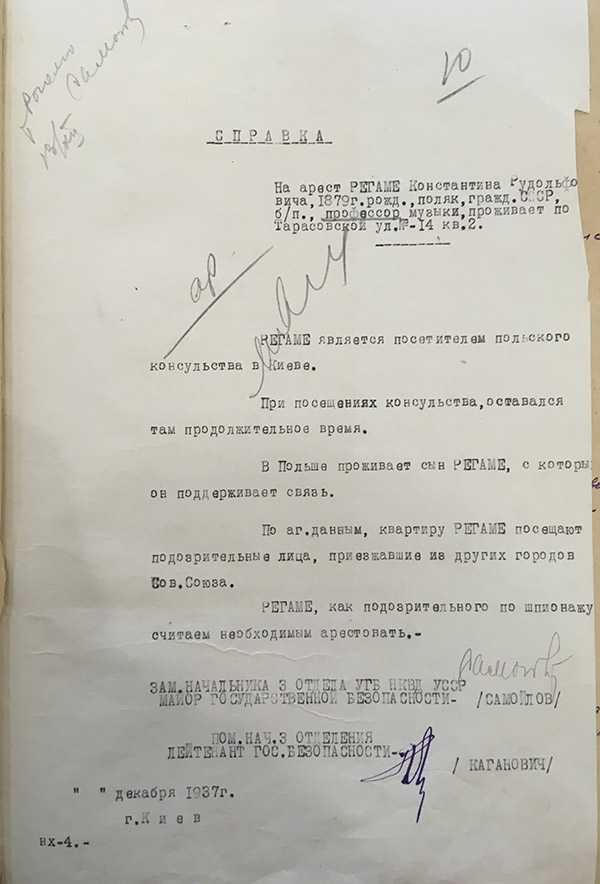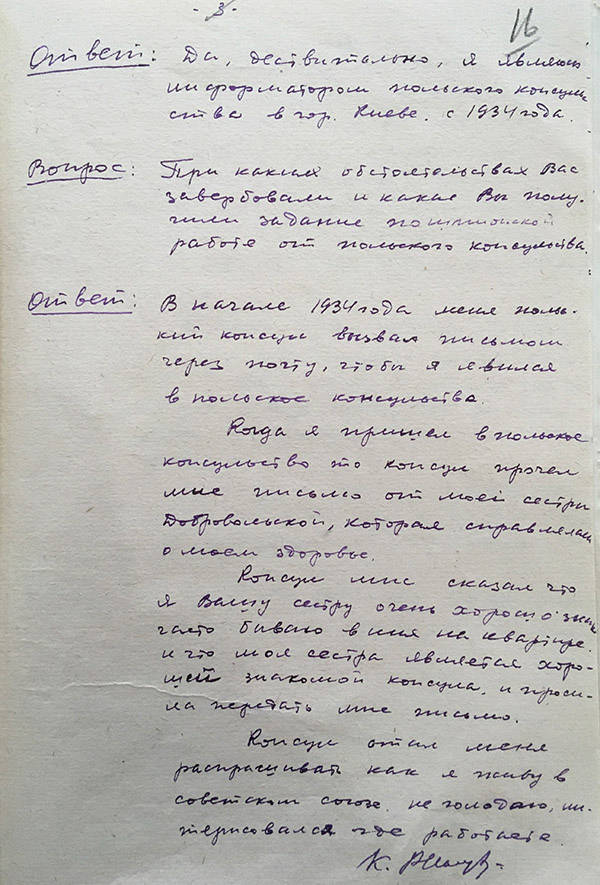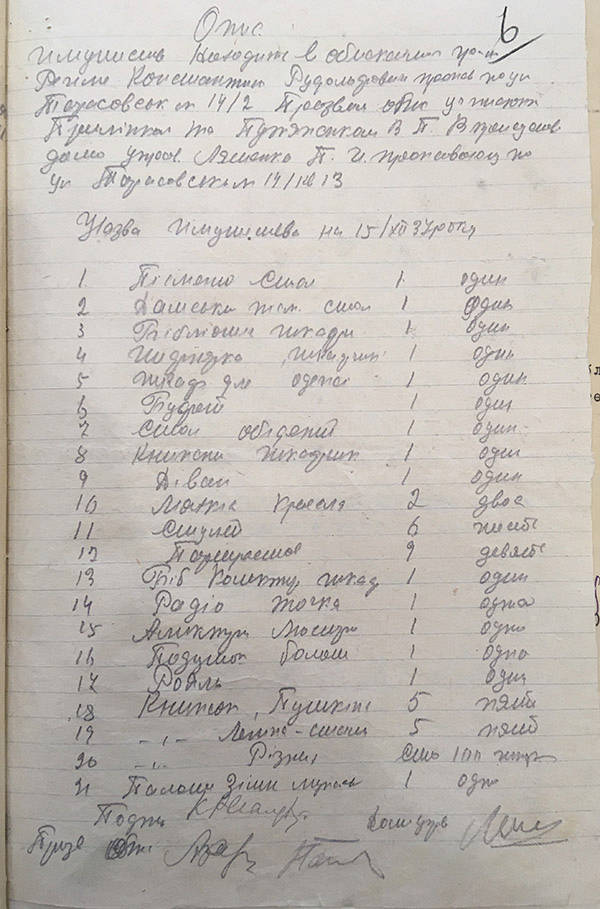NKVD documents
After many years of uncertainty and anxiety, two decades ago we learned the truth. Or was it the truth? Was Kostya Regame’s death really so horrible? Twenty years later, we know all the details, since we have the archival documents left behind by the NKVD and Soviet police investigators. We can see how Kostya’s repeated visits to the Polish consulate gave rise to charges of espionage. Konstanty Rudolfovich Regame, a pianist and Kyiv Conservatory professor – could he be a spy? In those times, everyone could very easily come to be viewed as one.
Just summoned to be interrogated at first, he very soon became a suspect, and a warrant for his arrest was issued, as we learn from item one, a document from NKVD’s former archive in Kyiv. How lonely must he have felt at that time? How much must he have missed his son in Warsaw, who, he believed, would live to become a great musician? His son’s letters, testimony to a great internal struggle, were his only consolation and great hope. True, he used to visit the consulate to pick up the letters. He did not deny it and stated it openly, as evident from item two, the minutes of his interrogation. He marked letters to his son, written in fine Polish, with successive numbers lest they might get lost or lest their meaning might get blurred with time.

ITEM ONE: Report

ITEM TWO: From the minutes of the interrogation
ENG_Translation of documents (PDF)
To the NKVD, he soon turned from suspect into culprit. He was arrested on 14 December 1937 and deprived of his civil rights and property, as we learn from item three, an inventory of 21 simple possessions necessary for everyday life: a piano, a table, a lamp, books, a winter coat – a list that we now find strangely moving. The list was signed by eight police agents who took part in this inventory, or rather in plain theft, naturally – on behalf and for the benefit of the communist state. There was also a witness, a neighbour summoned from another flat in the same house, most likely trembling with fear and aware that he, too, might well be taken away one day.

ITEM THREE: Inventory
The brief interrogation was followed on 18 December by an indictment, in which the highest authorities were requested to pronounce a death sentence. He was to be shot by firing squad. Afterwards, Regame stayed in prison for a month and two days more. Item four, an extract from the indictment, is very short, but contains the few crucial words: the sentence was carried out, and it says where and when: on 20 January 1938 at midnight. The body, we may guess, was then taken out of the city to Kyiv’s Bykivnia Forest, which makes it impossible to locate his mortal remains, not to mention the grave. There are too many of them there, Bykivnia also being the fourth Katyn Polish War Cemetery.
It was only in 1957 that Natalya Makharina, the Professor’s much younger wife, could petition the USSR Supreme Soviet to restore civil rights posthumously to her husband, who had been sentenced and shot, and fully to vindicate him. Everyone may wonder how a man so universally respected, a highly regarded professor of music, could be shot by firing squad only because he told the Polish consul that he was hungry. Hunger was an obvious fact of life at that time, the most common experience rather than a state secret.

ITEM FOUR: Extract from a document
It was thus only in 1957 that Kostya Regame regained his human dignity. His brave wife Natalya died in the same year. It was not at once, however, that the Professor’s memory was restored in his own circles. This proved to be a slow process, and his presence is in fact only quite felt now, after more than eighty years of silence.
The miraculous meeting of the siblings Konstanty, living in Lausanne, and his half-sister Svetlana from Moscow, allowed Regamey the son to learn the tragic truth at last. He could not accept or internalise it for a long time, and he did not mention his father or talk about this subject to anyone…
It was only following that meeting that things gradually began to fall back into place, and the distinguished artist-educator, Konstanty Kazimierz Rudolfovich Regamey, known to his friends as Kostya, returned to us as a felt presence.
Jerzy Stankiewicz Cracow, 1 November 2024

